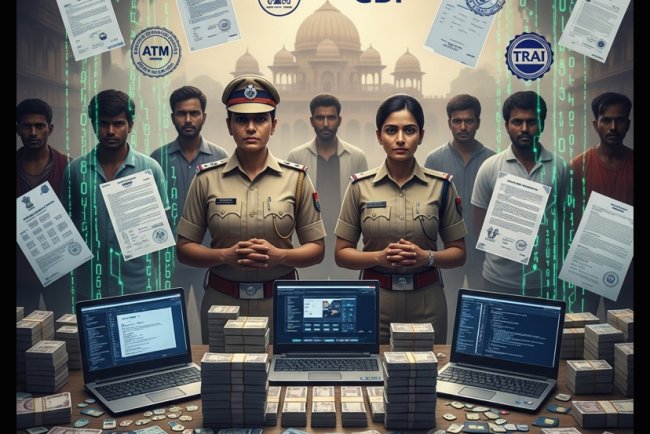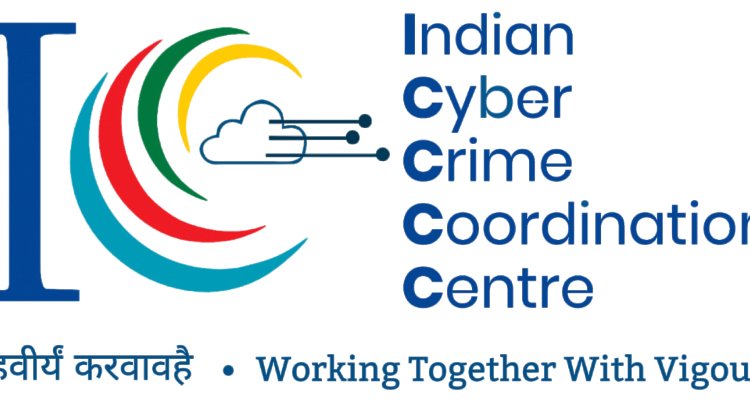Cyber Fraud Busted in Gir Safari Permit Booking: Gujarat CID Exposes Major Racket
Gujarat CID Cyber Cell has uncovered a large-scale cyber fraud involving fake bookings and illegal resale of Gir Jungle and Devalia Safari permits. Over 12,800 permits were sold at inflated prices using fabricated IDs and fake websites.

Cyber Fraud in Gujarat’s Gir Safari Permit System: A Professional Analysis
Overview
In a significant cybercrime crackdown, the Gujarat CID Crime’s Cyber Cell has dismantled a racket involved in the illegal sale of Gir Jungle Safari and Devalia Gypsy Safari permits. The accused exploited loopholes in the official government booking portal to manipulate the system and cheat tourists through unauthorised online bookings.
Key Accused
Three individuals were arrested:
-
Alpesh Kumar Bhalani – Resident of Thaltej, Ahmedabad
-
Sultanbhai Baloch – Resident of Sasan Gir, Junagadh
-
Ejaz Sheikh – Resident of Sasan Gir, Junagadh
These individuals created a fake scarcity of safari permits and sold them at 2–3 times the official price, primarily during weekends and holidays.
Modus Operandi
The accused used the official government safari booking platform, developed by Gujarat Informatics Pvt. Ltd. (GIPL), to carry out the fraud. Their strategy included:
-
Bulk advance bookings using fabricated names and random photos instead of legitimate Aadhaar details
-
Creating over 83,000 fake bookings between 1 January 2024 and 3 January 2025
-
Successfully confirming and reselling around 12,800 permits at inflated prices
-
Diverting tourists to their own unauthorised platforms
-
Developing 9 fake websites and multiple forged email IDs for fraudulent transactions
Impact
| Area | Impact |
|---|---|
| Tourism | Tourists overpaid for permits, affecting overall satisfaction |
| Government Revenue | Official channels lost revenue due to diversion of bookings |
| Cybersecurity | Exposed vulnerabilities in digital booking systems |
| Public Trust | Erosion of confidence in government-run online services |
An official from the Cyber Cell confirmed that the accused created an artificial scarcity to extort tourists, damaging both public trust and the integrity of the system.
Official Response
The CID Crime Branch has urged tourists to:
-
Book permits only via the official government portal
-
Avoid clicking on links shared through Facebook, Instagram, WhatsApp, or Telegram
-
Report cyber frauds by calling the Cybercrime Helpline 1930 or visiting the nearest police station
Analysis & Broader Implications
This incident highlights several critical issues:
-
Digital Infrastructure Vulnerability: Weak KYC verification allowed fake entries into the system.
-
Cyber Awareness Deficit: Many tourists were unaware of the risk of unofficial platforms.
-
Need for Policy Intervention: Stronger checks, such as Aadhaar-based OTP verification, AI-based fraud detection, and real-time monitoring, are necessary.
Recommendations
For Government Agencies:
-
Implement multi-layered authentication for all bookings
-
Use AI/ML to flag suspicious bulk booking patterns
-
Regularly monitor for fraudulent websites mimicking government portals
-
Launch public awareness campaigns on safe booking practices
For the Public:
-
Always verify the URL of the booking website (ensure it ends with .gov.in)
-
Do not trust social media ads or forwarded links for bookings
-
Report any suspicious activity immediately to Helpline 1930
Conclusion
This case underscores the urgent need for enhanced cybersecurity protocols in public-facing digital platforms, especially in high-demand sectors like eco-tourism. With proper enforcement and public awareness, such fraudulent practices can be curbed, ensuring safer and more transparent digital services.
Follow cyberdeepakyadav.com on
Facebook, Twitter, LinkedIn, Instagram, and YouTube
What's Your Reaction?























